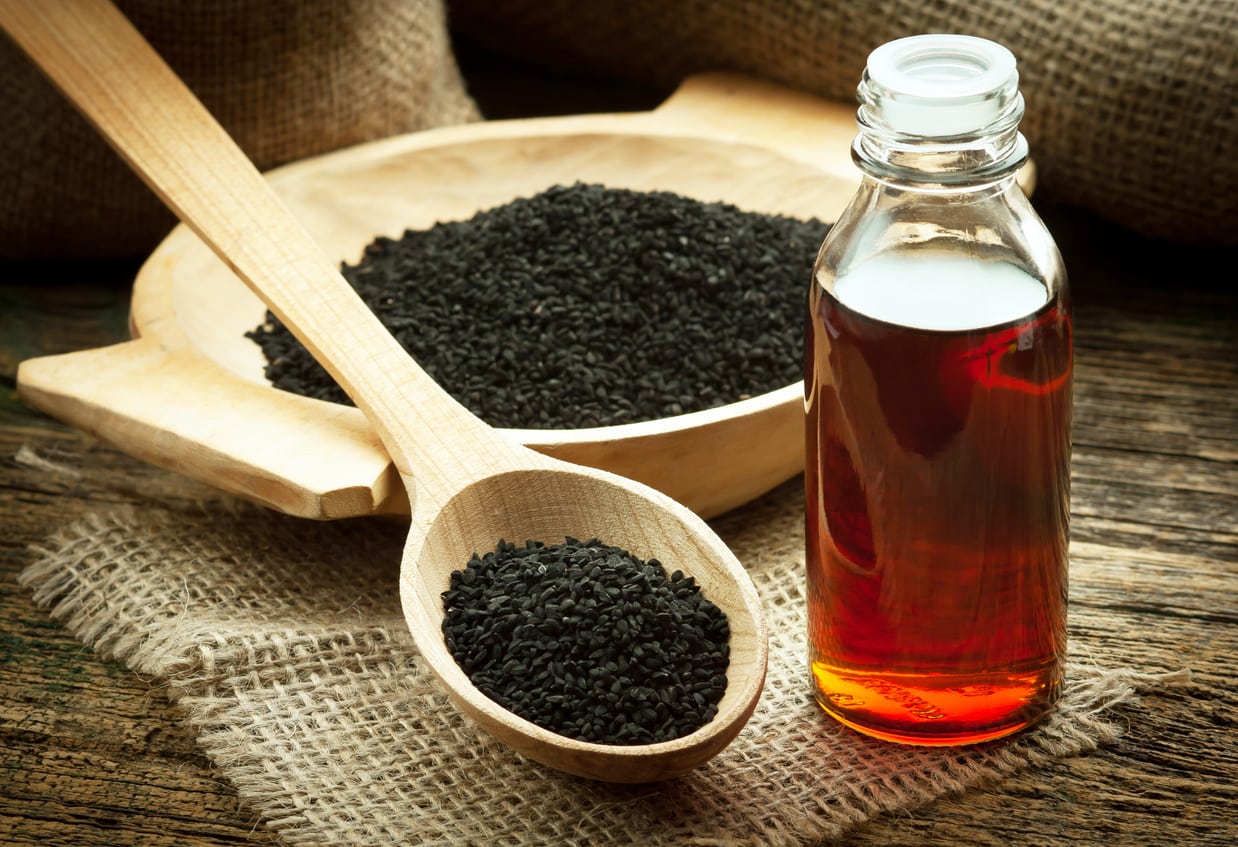Nigella Herbal Remedies – How To Use Nigella Sativa As An Herb Plant


Nigella sativa, often just called nigella or black cumin, is an herb native to the Mediterranean region. The seeds have long been used in the kitchen to add flavor to dishes and baked goods and for reported healing properties. Modern research is catching up to traditional practices, and there is evidence that nigella herbal use does have some real health benefits.
Using Nigella as an Herb in the Kitchen
Growing nigella in the garden not only allows you to collect the seeds for herbal and medicinal use but also to enjoy a pretty annual. It grows 8 to 12 inches (20.5 to 30.5 cm.) tall with fine, wispy leaves and delicate blue or white flowers. Allow the flowers to wither and develop into pods and you can collect and use the small, black seeds. When using nigella plants for the culinary value of the seeds, you have several options. You can use the seeds whole or grind them, and you can toast them first or use them raw. The flavor of the seeds has been described as bitter and a combination of oregano, pepper, and onion. Use nigella seeds in sauces and curries, ground up as a pepper alternative, on salads and vegetables, and in stir fries. Some traditional uses for nigella include adding it to string cheese recipes, potato dishes, and in breads, either mixed into the dough or sprinkled on top. There are many traditional nigella herbal remedies from several cultures, and while it is generally considered a safe herb, it is always important to talk to your doctor before using any herb for medicinal purposes. One traditional use has been for respiratory problems, including asthma, infections, allergies, and emphysema. Other uses in Mediterranean cultures are for liver disease, diarrhea, dysentery, colic, parasites, and abscesses. Modern research has shown that nigella can potentially provide healing effects for a number of conditions. The seeds have been shown to be antidiabetic, antimicrobial, and anti-inflammatory, to relieve pain, to improve breathing in asthmatics, to protect the liver and kidneys, and to heal gastrointestinal distress. Nigella seeds may even prove to be useful in helping people overcome opioid addictions. And, there is more evidence from ongoing research that compounds found in nigella may protect against cancer or even slow the growth of cancer cells and tumors. Nigella is a pretty plant to grow in the garden, and the seeds are tasty in many dishes. They may also provide important health benefits. Note: Nigella damascena, or love-in-a-mist flower, is commonly planted in gardens for its ornamental blooms. While this cousin is not the same nigella mentioned in this article, it too is said to have edible seeds, though a bit sweeter tasting.
Sign up for the Gardening Know How newsletter today and receive a free copy of our e-book "How to Grow Delicious Tomatoes".

Mary Ellen Ellis has been gardening for over 20 years. With degrees in Chemistry and Biology, Mary Ellen's specialties are flowers, native plants, and herbs.